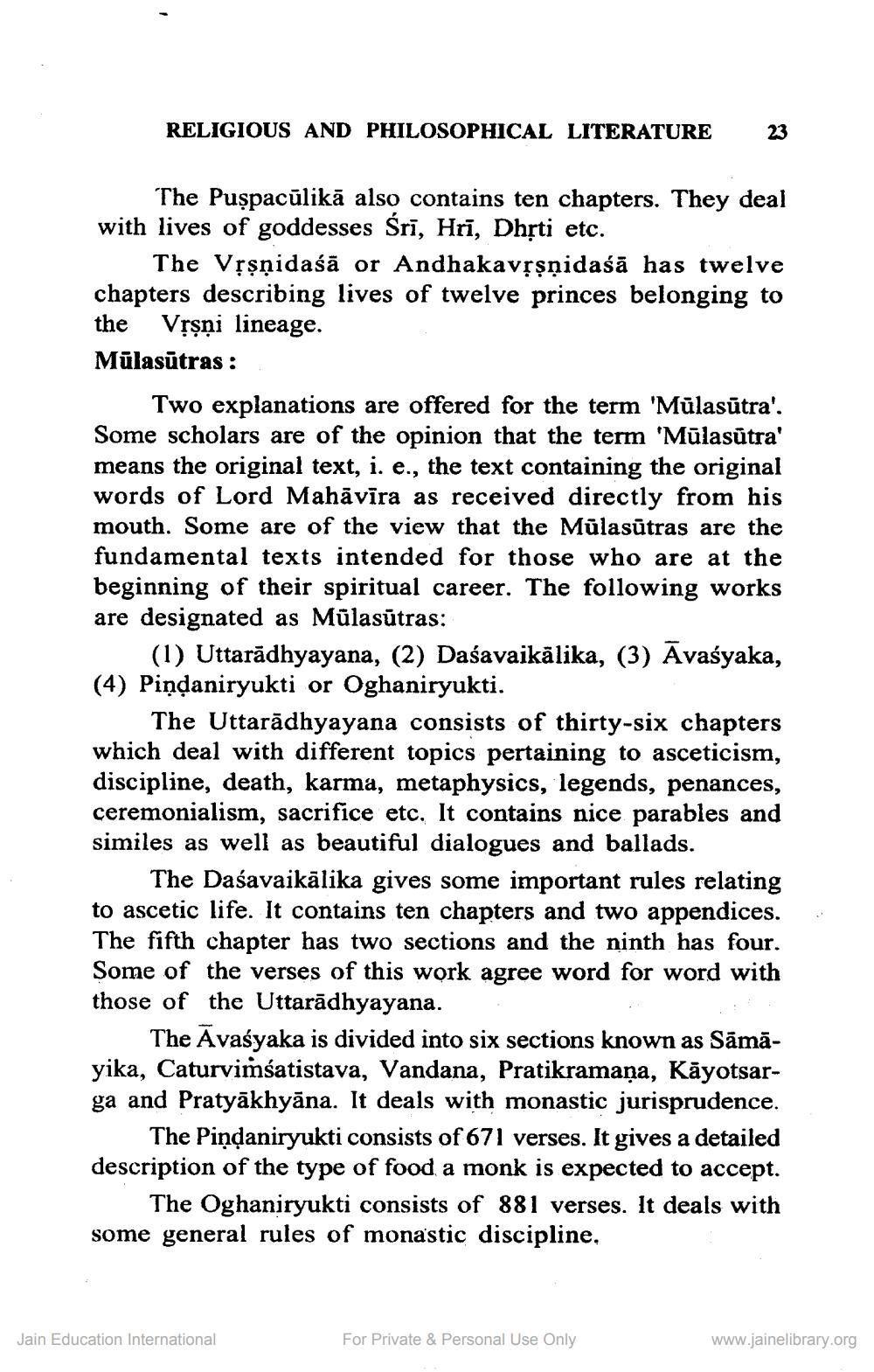________________
RELIGIOUS AND PHILOSOPHICAL LITERATURE
23
The Puspacūlikā also contains ten chapters. They deal with lives of goddesses Śrī, Hrī, Dhịti etc.
The Vrşạidaśā or Andhakavṛṣṇidaśā has twelve chapters describing lives of twelve princes belonging to the Vrşņi lineage. Mūlasūtras:
Two explanations are offered for the term 'Mülasūtra'. Some scholars are of the opinion that the term 'Mūlasutra' means the original text, i. e., the text containing the original words of Lord Mahāvīra as received directly from his mouth. Some are of the view that the Mūlasūtras are the fundamental texts intended for those who are at the beginning of their spiritual career. The following works are designated as Mūlasūtras:
(1) Uttarādhyayana, (2) Daśavaikālika, (3) Āvaśyaka, (4) Piņdaniryukti or Oghaniryukti.
The Uttarādhyayana consists of thirty-six chapters which deal with different topics pertaining to asceticism, discipline, death, karma, metaphysics, legends, penances, ceremonialism, sacrifice etc. It contains nice parables and similes as well as beautiful dialogues and ballads.
The Daśavaikālika gives some important rules relating to ascetic life. It contains ten chapters and two appendices. The fifth chapter has two sections and the ninth has four. Some of the verses of this work agree word for word with those of the Uttarādhyayana.
The Āvaśyaka is divided into six sections known as Sāmāyika, Caturvimśatistava, Vandana, Pratikramaņa, Kayotsarga and Pratyākhyāna. It deals with monastic jurisprudence.
The Pinďaniryukti consists of 671 verses. It gives a detailed description of the type of food a monk is expected to accept.
The Oghaniryukti consists of 881 verses. It deals with some general rules of monastic discipline,
Jain Education International
For Private & Personal Use Only
www.jainelibrary.org




